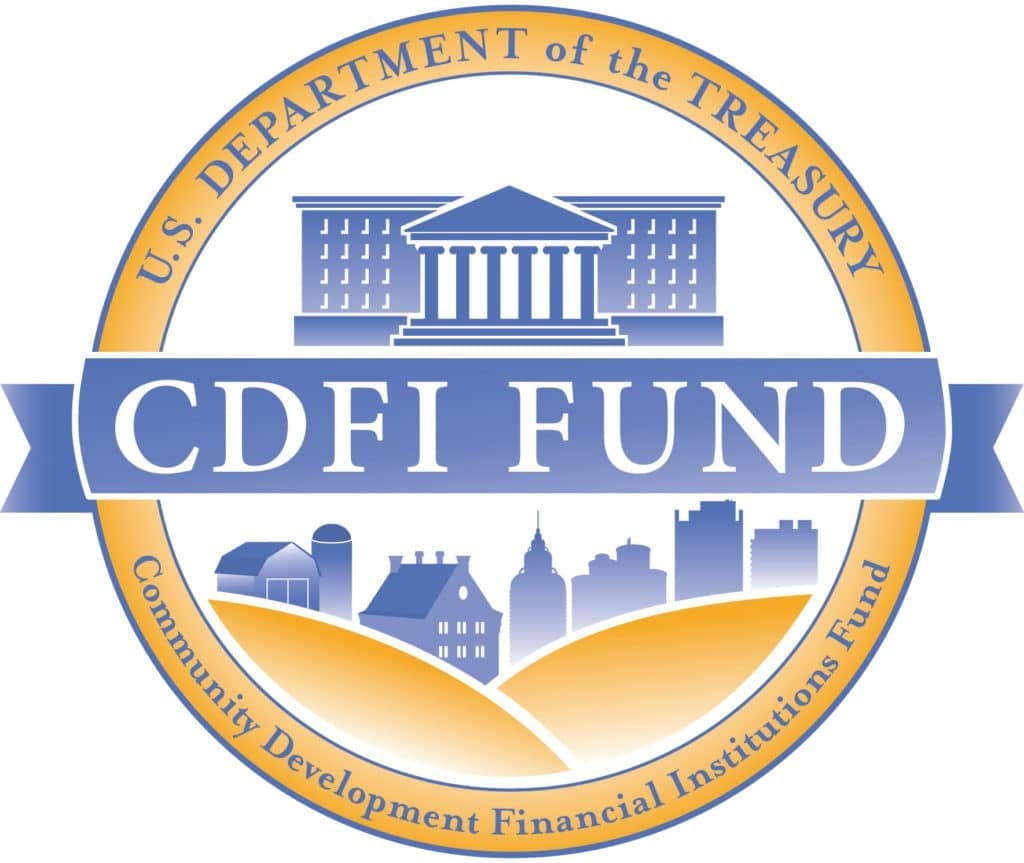
About the CDFI Fund
The Community Development Financial Institutions Fund (CDFI Fund) was established within the U.S. Department of Treasury in 1994 to promote community development in economically distressed urban and rural communities by investing in and growing CDFIs nationwide. As of the winter of 2025, there were 1,432 Treasury-certified CDFIs. In addition to overseeing CDFI certification, the CDFI Fund administers a range of innovative programs designed to strengthen the ability of CDFIs to provide financial products and services. The CDFI Fund administers the following core programs, and each program awards funds through an independent and competitive application process.
CDFI Certification is the U.S. Department of the Treasury’s recognition of specialized financial institutions serving low-income communities. Through Certification, CDFIs are qualified to apply for technical assistance and financial assistance awards, as well as training provided by the CDFI Fund through the Capacity Building Initiative.
The CDFI Fund makes Financial Assistance (FA) awards to both large and small certified CDFIs, including those financing healthy food businesses. FA awards can be used for lending capital, loan loss or capital reserves, operations, or development services. A CDFI is required to match its FA award dollar-for-dollar with non-federal funds.
The CDFI Fund makes Technical Assistance (TA) Awards to certified CDFIs and emerging CDFIs, to support efforts to expand the organization’s success and sustainability. There is no match requirement for TA awards, and funds can be used to support a variety of capacity-building activities, including hiring consultants or contract services, and training staff or board members. component of the CDFI Program.
The Native American CDFI Assistance (NACA) Program was launched in 2001 to encourage investing in Native Communities by supporting the creation and expansion of Native CDFIs, which in turn help to create jobs, establish, or improve affordable housing, and provide appropriate financial services and counseling to community residents. The number of Native CDFIs has increased from 14 in 2001 to 64 in 2024.
As part of the CDFI Program, the CDFI Fund also offers supplemental awards through the Healthy Food Financing Initiative. CDFIs that are selected to receive a Financial Assistance award may also receive a Healthy Food Financing Initiative award to expand their healthy food financing activities.
The Bank Enterprise Award (BEA) Program provides monetary awards to FDIC-insured banks and thrifts that have increased their investment activity in communities with high poverty and unemployment rates. The size of a BEA award is based on how much the bank or thrift has increased its investment in low-income communities or CDFIs. All BEA funds awarded must be reinvested into a distressed community or a CDFI. From the program’s launch in 1994 through 2024, the CDFI Fund has awarded more than $638 million in BEA grants. Between FY 2016 and FY 2024, $253.3 million in BEA awards generated $4.3 billion in additional loans and investments and $314 million in other financial services in distressed areas.
The CDFI Fund also administers the New Markets Tax Credit (NMTC) Program, which was authorized in 2000 to stimulate private investment in low-income communities. The CDFI Fund has made 1,667 allocation awards totaling $81 billion to date. NMTC investments have created more than 1.2 million jobs that cost the federal government under $20,000 per job. Through the end of 2023, the NMTC leveraged more than $135 billion in capital investment in communities with high poverty and unemployment rates. Additional information on the NMTC can be found on the NMTC Coalition’s website.
To use this program, you must be certified as a Community Development Entity (CDE), which is a separate certification process from that of becoming a CDFI.
The Capital Magnet Fund (CMF), administered by the CDFI Fund, provides competitive grants to CDFIs and non-profit organizations to finance the acquisition, construction, preservation, and rehabilitation of affordable housing and related economic development efforts. CMF is authorized under the Housing and Economic Recovery Act of 2008 and is funded by allocations from two government-sponsored entities (Fannie Mae and Freddie Mac) regulated by the Federal Housing Finance Agency. Through 2024, $556.6 million of CMF funding to fully completed housing projects generated $17.6 billion in total project capital, a leverage ratio of nearly $30 for every $1 of award funding, far exceeding the 10-to-1 required ratio. CMF has financed the creation of over 83,000 affordable homes, including more than 74,800 rental homes and over 8,100 owner-occupied homes.
The CDFI Fund administers the CDFI Bond Guarantee Program, which was authorized in 2010 to empower the Treasury Department to guarantee notes or bonds currently issued at no cost to the federal government to support CDFI lending and investment activity. Since 2010, the CDFI Fund has guaranteed nearly $3 billion in bond authority through the program.
The Small Dollar Loan Program was created to help Certified CDFIs address the issue of expanding consumer access to mainstream financial institutions and provide alternatives to high cost small dollar loans.
Launched in 2021, the CDFI Fund has provided more than $40.2 million in SDL Program awards to CDFIs through three program rounds.
